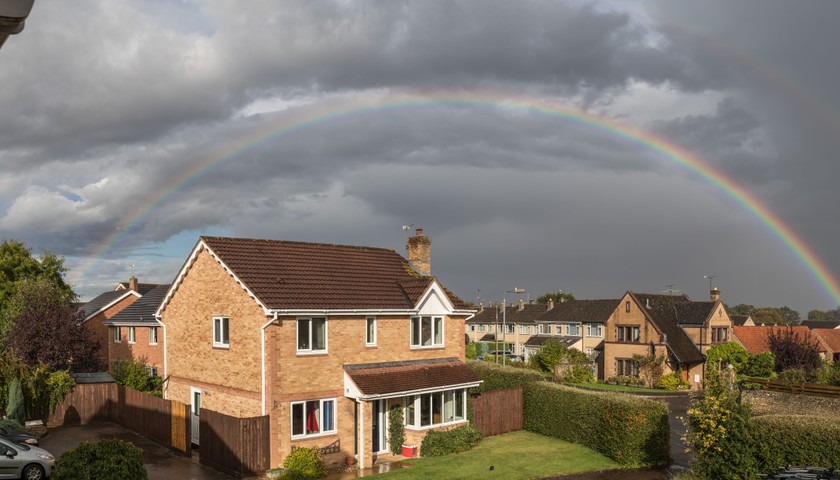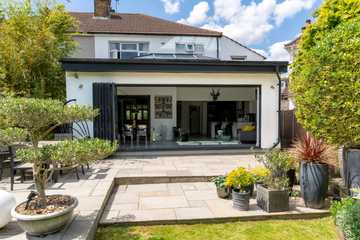Your Watford and Hertfordshire market report

After fourteen consecutive rises, the Bank of England finally decided to keep the base rate on hold last month. There is still an outside possibility of one last rise of 0.25%, but all eyes are now on how the housing market will react.
It is too early to see its impact on the various housing indices, as the Bank of England’s announcement didn’t come until the middle of last month. However, as inflation had already shown signs of slowing, confidence in the sector increased, and there was a slight uptick in asking prices (+0.4%) from the previous month. That is, though, a little below the average for this time of year, with prices typically rising by 0.6% as activity ramps up after the summer hiatus. Annually, prices fell from -1.9% to - 0.4%.
It will be some time before all the changes in the base rate fully feed through the system. Many with five-year fixed-rate mortgages haven’t experienced any changes in their mortgage costs, whereas first-time buyers and anyone coming to the end of their deals have been at the brunt end of it.
There has been a stand-off in the interim, with sellers remaining reluctant to offer discounts and buyers making lower offers and waiting for mortgage rates to fall. It means sales volumes were down by 18% this July (latest available figures) compared to pre-pandemic 2019. Sellers are finally showing signs of adapting to the situation, with 36.3% of properties currently for sale having had a price reduction, at an average of £22,700 or 6.2%. And according to another property listings portal, Zoopla, the average discount on the advertised sale price is currently 4.8%.
The price of smaller, more affordable homes is holding up better than it is for larger properties and, as a result, Matthew Marchant Rolstons’ Sales Director advises:
“Sellers in the middle and upper sectors need to be extra careful not to set their price expectations too high. Plenty of sales are happening, and deals agreed for properties priced at the right level, and those selling are still taking five days less than at this time in 2019. We also see fall-throughs decline as market conditions and mortgage rates stabilise.”
With the economic outlook improving, inflation easing and employment levels high, the pressure to reduce prices much further is limited, so activity may remain subdued until the base rate reduces rather than prices start to come down. Most experts believe that may not happen for another 12 months, at which point we will be in the midst of an election.
Rental & Buy-To-Let Market
Unlike the sales market, the outlook for the rental market shows no sign of improvement. Rents were up again last month, with the average now hitting £1,276pcm. That’s a 1.2% jump from the previous month and 10.1% from last year. In London, the average rent is now £2,179pcm, up 1.6% from August and by 12% annually. And, in some London boroughs, annual rises were even higher – in Barking, Dagenham and Havering, they rose by 19% and in Hammersmith, Fulham, Kensington & Chelsea, they rose by 16.5%.
The incessant rises are stretching affordability in ways never seen before. The average tenant is now spending 32.5% of their income on rent. In 2017, that figure was 27.3%. In London, unsurprisingly, it’s far worse, with the typical tenant now having to pay 38.7% of their income on rent compared to 30.6% in 2017 (Source: Homelet Rental Index).
One of the drivers of rental increases is landlords’ inability to offset rising mortgage costs against their profits. They are, instead, either having to look to tenants to make up the shortfall or are selling up. Unfortunately, with an election looming, the government is unlikely to re-introduce full tax relief on mortgage payments because they won’t dare to appear to be handing out money to landlords.
Breydon Duffy, Lettings Manager of Rolstons, says of the current situation:
“This cannot be sustained, but it’s just one example of the chaos caused when governments intervene without fully understanding the market. In short, a solution needs to be found – and quickly.”
In other news, the government has now made a U-turn on their requirement for all rental properties to achieve at least an EPC grade C by 2025. It could have cost landlords as much as £10,000 per property, and scrapping the requirement may prevent more of them from selling up.
If you'd like to talk to an agent for more personalised advice, our team are always on hand to help. We'd love to hear from you, whether it's just a quick chat or a no-obligation property valuation.
Warm wishes,
The team at Rolstons
FURTHER INFORMATION






